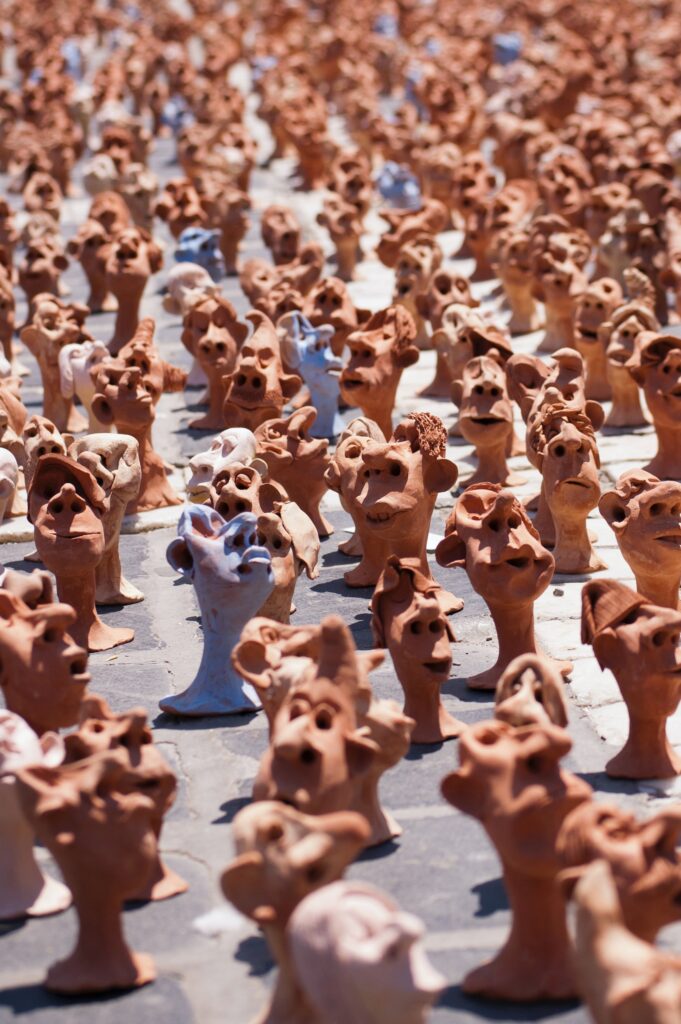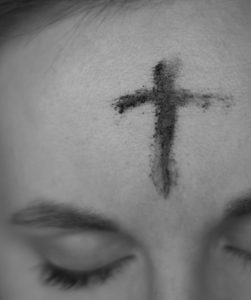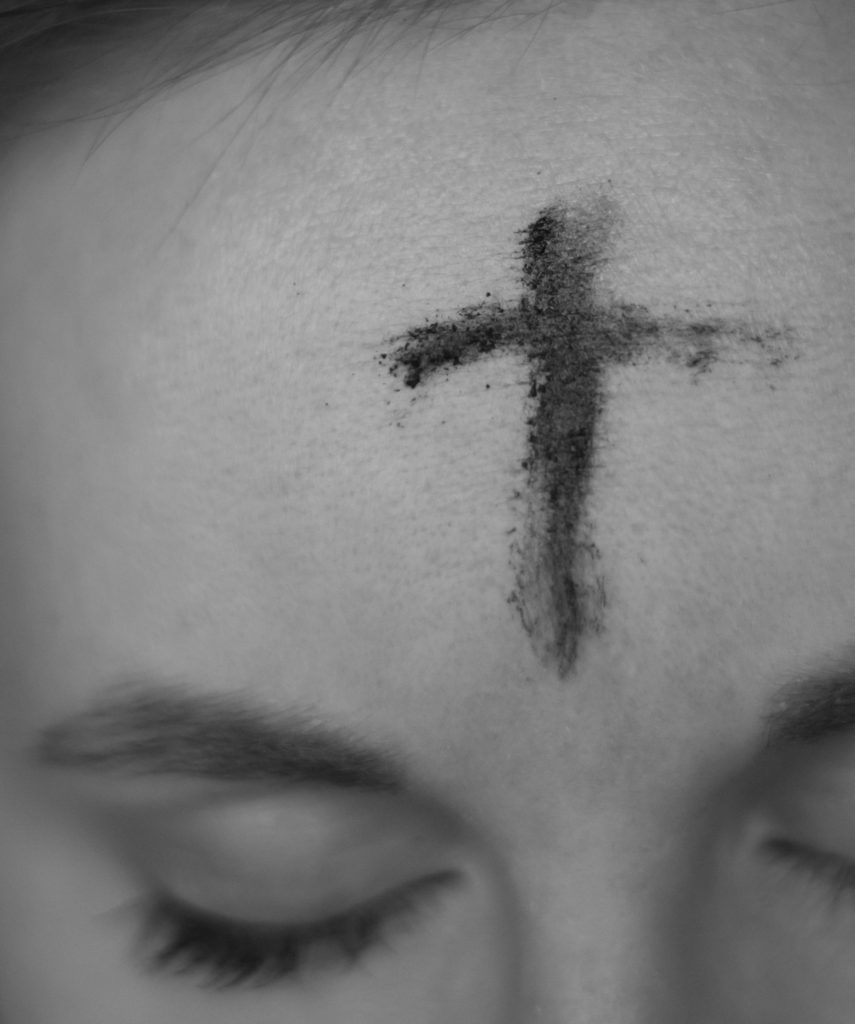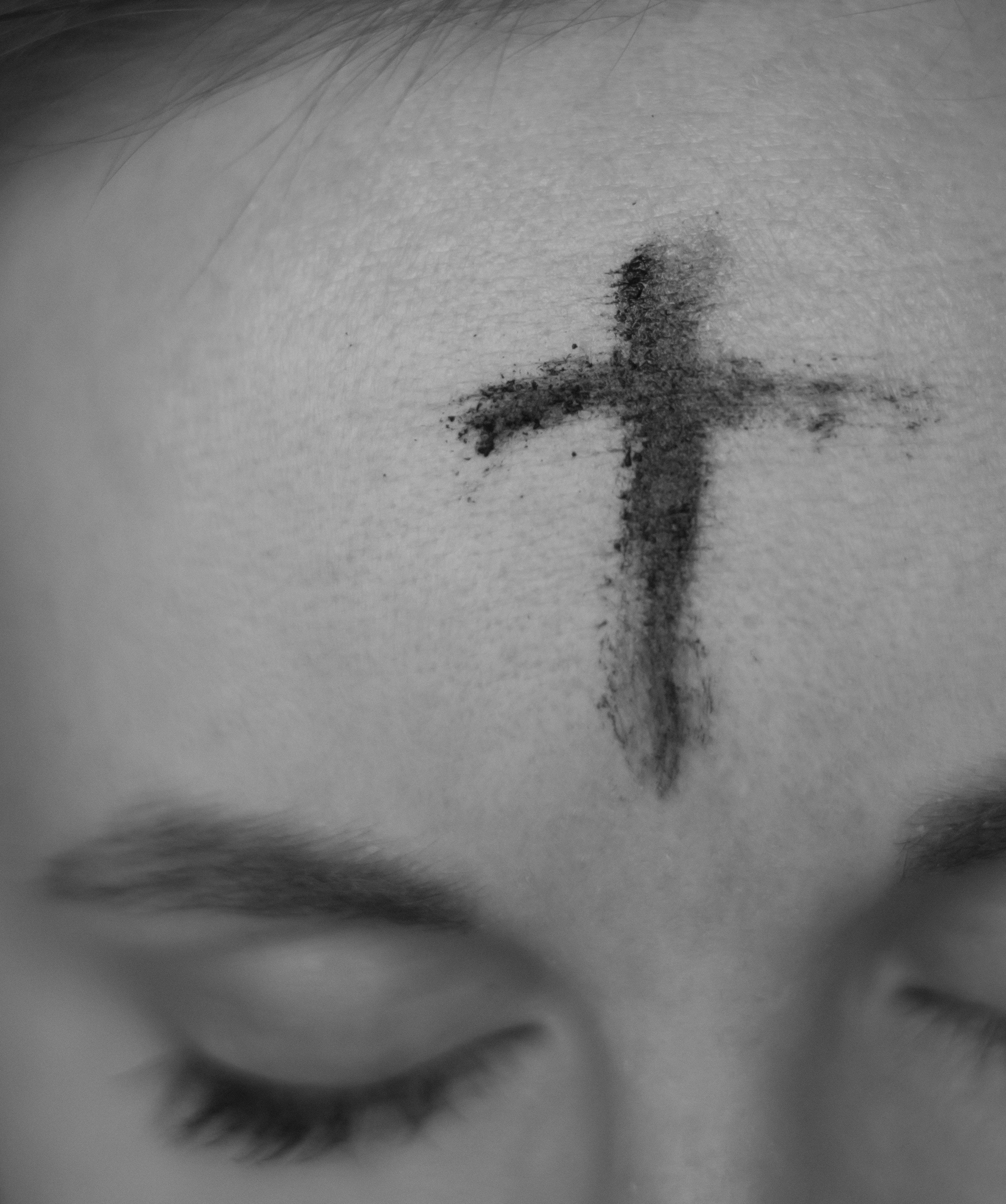Being alive blows me away. Every so often I’m gobsmacked anew by the miracle I am, and that you are. Animate, conscious meat sacks—bundles of aggregated Earth elements, able to sing and dance and tell stories. Able to learn. To remember.
Able to love. And to hate.
How crazy is this?!
This being alive thing is astounding! Awesome! Amazing! Wild!
I’m also able to know one day I’ll end. This self-aware, cohered dust that is me will return to the Earth from which I sprang. The miracle that is me will cease to exist in this form. This is, of course, true for every Earthling entity. I’m not special.
My friends in their 80s laugh at me—but I do fear aging and death. The other side of this amazing being alive thing is this amazing dying thing. I’ve already outlived both parents. I’ll be 80 myself in fifteen years.
I know how fast fifteen years goes. It’s not long.
Jed’s impending retirement has made this life of mine feel all the more urgent. For 50 years, I’ve been thinking someday I’ll get around to that. And next time I’ll do it different. Better. Somedays and next times are dwindling fast. I don’t have many do-overs left.
I want to live MY life, the life I’m meant to live. The life I choose for myself, not the one I’ve been trained to live. The life where I follow others’ rules and measure myself by others’ standards is a safe life. Safe, easy, and painful.
Now I see. This is what Lent is for: to examine my choices and conform them more fully to my values. So I won’t have regrets on my death bed. I want the Earthlings I love to know without an iota of doubt that I love them, through and through.
This revelation is nothing new, it turns out. Tradition and Mary Oliver have gotten here first.
Of course Lent is about mortality, says my husband when I share my revelation. He tells me Frederick Buechner said that Lent is for the big questions. Seven weeks to take meaning and mortality seriously.
And, of course also Mary Oliver, who asked What does it mean that Earth is so beautiful? And what shall I do about it? What is the gift that I should bring to the world? What is the life that I should live?
Living my life my way requires both going rogue and returning home. Following the direction of my heart will create more external conflict, as I bump up against established patterns and others’ preferences and expectations. Following my heart’s direction also means more internal peace, as the gap between my values and my choices narrows.
That gap hurts. That gap sucks energy. That gap is where I lose myself.
I want to close that gap. I want to recommit to myself and my priorities. Living in integrity with myself is self-ish. It’s also necessary, despite all the training to the contrary.
My integrity is my birthright.
Your integrity is your birthright.
Our integrity is our home.
PS. My newsletter is where I share my latest writing, news, and offerings. If you want to subscribe, you can do that here, and thank you!
[Photo: Natalie Rhea Rigg on Unsplash]
Tag Archives: Lent
Ash Wednesday: Two meditations on being, dust to dust.

Dust to dust, ashes to ashes, the cycle begins again, the ancient whisper of our own frailty, slipping the fine clothes from our shoulders, taking the crown from our heads, bringing us back to that humble place where it all began and where it will surely end. We are the children of the Earth. Earth born, common as the ground we share, raised up by grace to breathe the mystery, laid back down to sleep the mystery deeper still. Dust to dust, life to life, the great cycle spirals our souls, sends us sailors of time, until we come to rest in our own humility, source of our true dignity.
Blessing the Dust
For Ash Wednesday
All those days
you felt like dust,
like dirt,
as if all you had to do
was turn your face
toward the wind
and be scattered
to the four corners
or swept away
by the smallest breath
as insubstantial—
did you not know
what the Holy One
can do with dust?
This is the day
we freely say
we are scorched.
This is the hour
we are marked
by what has made it
through the burning.
This is the moment
we ask for the blessing
that lives within
the ancient ashes,
that makes its home
inside the soil of
this sacred earth.
So let us be marked
not for sorrow.
And let us be marked
not for shame.
Let us be marked
not for false humility
or for thinking
we are less
than we are
but for claiming
what God can do
within the dust,
within the dirt,
within the stuff
of which the world
is made
and the stars that blaze
in our bones
and the galaxies that spiral
inside the smudge
we bear.
[Photo by Ovidiu Creanga on Unsplash]
A letter from God to her daughters who observe Lent.
Featured

| Dear Daughter, On Ash Wednesday, if you are in church, the minister will invite you to the observance of a “holy Lent” and mark your forehead with the ashes of repentance. Let me be very clear about this: I love you so much. I delight in you. I cherish you. For ever. Here are a few more things I want you to comprehend. Despite what you’ve been taught, “holy” does not mean pure and unearthly. “Sin” does not mean breaking my rules and making me mad. “Penitence” does not mean listing and wallowing in all the ways you’re wrong and bad. “Repentance” does not mean promising to do better to stay out of trouble. Please think about these words a new way, on Ash Wednesday and every other day going forward. What if you only sin when you refuse healing and cling to brokenness? When you use those sharp broken edges to hurt yourself and others? What if holiness is when you choose to be whole, even though you’re terrified? When you embrace and enfold those pieces of yourself you’ve lopped off to fit into others’ molds? What if penitence is when you see yourself clearly, and know, speak, and live from your heart? What if repentance is returning to your true self in all her messy glory? What if, this Lent, instead of focusing on the ways you’re not good enough and the ways you fall short, you commit to your own healing? I was there at the Big Bang, enlivening every particle, atom and molecule. You are made of me, and through me you are connected to everything and everyone. I am everywhere, my love. You live in me and I live in you. This means, my dear, when you let yourself be healed, your healing heals the world. And when you cling to your brokenness, the world stays a little more broken than it needs to be. Your healing is important and necessary. You think your healing is selfish. That’s incorrect. On the contrary, your healing is crucial. I’m using that word deliberately, sweetheart. Your healing is the crux – where you and I come together. This Lent, the only fasts I want from you are these: Fast from distractions that allow you to stay wounded and broken. Fast from believing you’re not good enough. Fast from making yourself small, and nice, and silent. Fast from all judgment, especially of yourself. This Lent, make space for me to flow into you and through you. Befriend your fear, your anger, and your sadness. They are a deep source of nourishment and strength. Let your love go free. Let your joy be unconfined. Sweetheart, healing isn’t complicated, and it’s always here for you. All you have to do is tap into it, like a springtime maple tree or an aquifer of living water. You know this. But it’s so easy to forget, isn’t it? All you have to do is let me clear out the dams and the trash, the resentments and identities and old, too-small skins that keep you stuck and stagnant. Open your heart armor just a little. Let go, child. Breathe and soften. That’s all you have to do. I’ll do the rest. This Ash Wednesday, let those ashes symbolize our unending connection, a connection so easy to forget and so simple to strengthen. When the priest wipes those gritty ashes on your forehead and says, “Remember that you are dust, and to dust you shall return,” celebrate your elemental oneness with this dear, dirty earth, and with me. I am in those ashes, in the dust, in the stars, and in you. I need you, my daughter. You’re the only you I created. Please, let yourself be the creation I made you to be. You don’t need someone outside yourself telling you how to live. Trust yourself. Trust your heart. Trust me. I’ve got you. All my Love, God (A Lenten gift for you: two free PDF printables from this letter.) Photo: Ahna Ziegler on Unsplash |
This Lent, I will love the wildness in me.

Cleaning the irrigation ditches, “acequias,” is a tradition in Northern New Mexico. Farmers dig acequias to bring water to their fields. Every spring, at the beginning of the growing season, the community gathers to weed and dredge the ditches, so the water goes where farmers want it to go and waters what they want it to water. Acequias have deep roots and a holy place in Pueblo and Spanish New Mexican culture.
Cleaning the acequias has long been one of my favorite metaphors for Lent. This week, as I was listening for what wanted to be written to you, I realized that cleaning the acequias is a tame metaphor. It doesn’t work for me anymore.
What’s Lent?
Lent shares a root with the word “lengthen” and refers to the seven weeks before Easter, a time of lengthening daylight in the Northern Hemisphere. Lent is when many Christian religious folk prepare intentionally for Easter by taking on a Lenten discipline.
Lenten disciplines often involve giving something up—chocolate, alcohol, social media—or taking something on—Bible study, meditation, decluttering. The point of a Lenten discipline, traditionally, is to make room in one’s heart and life for the risen Jesus on Easter Sunday. A focus on sin—how we fall short—and penitence—how we can punish ourselves so we’ll do better—loom large in this traditional mindset.
Many progressive clergy and church communities do their best to steer their Lenten focus toward spiritual growth and wholeness. Given the deep rootedness of sin and penitence in Lent, they’re fighting an uphill battle.
Back to acequias.
Irrigation, no matter how picturesque or historic, domesticates wild water. Copious, noisy, wild water, flowing downstream from snowy mountains, is diverted into smaller and smaller channels. Weeds are not allowed, only crops that meet the needs of farmers or landowners.
Four years ago, I wrote “A letter from God to her daughters who observe Lent.” It went a little viral in 2019 and has now been read over 60,000 times. I think that post resonates so deeply because those words refresh and renew like cold, clear water. They feel good in our bodies. They feel healing. They feel true. They feel like love.
Traditional religious ideas about sin and penitence can hurt. There is no healing in fear-based disciplines.
“The Cathedral and the Well” is the story of a pilgrim walking through the desert, searching for water. She’s checking old maps and sees that water is around somewhere, but she can’t find it. She’s desperately thirsty, and all she sees is a ruined building made of dry, dusty stones. Then, in the silence of the desert, she hears the faint sound of flowing water. She follows the sound and discovers that it’s coming from the building! She moves a loose stone aside and the sound gets louder. She continues to pull away stones until there’s a gap big enough to crawl through. Once within, she sees a spring of living water emerging from the dirt. She drinks deeply.
For centuries, pilgrims passing this way piled stones to mark the location of the spring. Over time, the stones had completely covered the life-giving water. (I’m renaming this story “The Cathedral and the Spring.”)
We can choose Love-based disciplines. We can choose wild disciplines. This Lent, I want to love the wildness in me. I want to love my internal wilderness—the inappropriate, unkempt, honey-sticky, dirty, weedy, weird parts—the parts I try to hide. The parts I haven’t quite gotten tamed so I keep them closeted and caged.
Peregrina Martha explores wildness through the lens of old-growth trees in this excerpt from Lost & Found, my Camino novel. (For more, you can download a free PDF here. The novel’s a bit of a mess in places, with occasional salty language.)
Going Wild
I watch my hand that holds the hammer that pounds me into a shape that fits the proper hole. I pound and pound myself, but I don’t quite fit. I squeeze a bulge in here, shave off a sharp edge there, and pound and pound and pound. I try to whittle myself down to nothing so I can disappear. Bang bang bang on my head hits the hammer. Square peg in round hole. Redwood into toothpick. I cut the inconvenient pieces off. I limb myself so I slide smoothly into the mill.
Limbs are where the wild things live – where birds make their nests.
Limbs are an impediment to masts and poles. I will wield the ax for you. Let me cut off my limbs to make myself suitable for industry. I will make myself straight and rigid and useful to you powers. Let me read your mind and do what you want before you ask it, so you are blameless.
Behold the limbless handmaid of the Lord.
I will stop pounding myself into a hole that will never ever fit. I will regrow my limbs and branches so wild things have a place to live. I will nourish my roots and reach for the roots of others.
I am no longer espaliered.
I am a Redwood. I am an old Ponderosa…
I am regrowing myself. I am undebecoming.
Deep kindness. Compassionate heart.
Put down the hammer and the axe.
Let go. Free fall. Trust.
Allow yourself to be who you are.
Completely here…
We are not a fiber farm. We are not a monocultured industrial forest. We are old growth. We are many- layered, and we harbor secrets. Sasquatch lives within us. We hold stories upon stories. Our usefulness is not immediately apparent. Tiny communities of uncommon organisms live only in us. We are interwoven and interdependent. We contain entire ecosystems in our crowns. Marbled Murrelets nest in our upper limbs, bathed in Pacific fog. A thousand feet above the ground, seedlings sprout from leaf duff six feet deep.
We are the old ones. The living ones…
You are deeply loved.
Growing is your job.
Be who you are.
Exform your Self into the world.
Prepare.
Good questions for Lent:
Old-growth Redwoods contain entire ecosystems on their branches and in their crowns. What chopped-off limbs will you regrow? How wild will you let your crown get? What axe will you put down?
Living Water flows in the Wild places. Who’s thirsty in your heart? What desiccated places within you yearn for wild water? What parts of you long to be rewilded? What stones will you dislodge so Living Water flows freely? What internal wilderness will you explore?
These are, for me, good questions for a healing, holy Lent. I offer them to you with love.
P.S. If you’d like my latest writing, news, and coaching offerings delivered to your inbox, please subscribe to my weekly-ish newsletter here, and thank you!
[Photo: Melissa Askew on Unsplash]
A letter from God to her daughters who observe Lent
Dear Daughter,
On Ash Wednesday, if you were in church, the minister would invite you to the observance of a “holy Lent” and mark your forehead with the ashes of repentance.
Let me be very clear about this: I love you so much. I delight in you. I cherish you. For ever.
Here are a few more things I want you to comprehend. Despite what you’ve been taught, “holy” does not mean pure and unearthly. “Sin” does not mean breaking my rules and making me mad. “Penitence” does not mean listing and wallowing in all the ways you’re wrong and bad. “Repentance” does not mean promising to do better to stay out of trouble.
Please think about these words a new way, on Ash Wednesday and every other day going forward.
What if you only sin when you refuse healing and cling to brokenness? When you use those sharp broken edges to hurt yourself and others?
What if holiness is when you choose to be whole, even though you’re terrified? When you embrace and enfold those pieces of yourself you’ve lopped off to fit into others’ molds?
What if penitence is when you see yourself clearly, and know, speak, and live from your heart?
What if repentance is returning to your true self in all her messy glory?
What if, this Lent, instead of focusing on the ways you’re not good enough and the ways you fall short, you commit to your own healing?
I was there at the Big Bang, enlivening every particle, atom and molecule. You are made of me, and through me you are connected to everything and everyone. I am everywhere, my love. You live in me and I live in you.
This means, my dear, when you let yourself be healed, your healing heals the world. And when you cling to your brokenness, the world stays a little more broken than it needs to be. Your healing is important and necessary.
You think your healing is selfish. That’s incorrect. On the contrary, your healing is crucial. I’m using that word deliberately, sweetheart. Your healing is the crux – where you and I come together.
This Lent, the only fasts I want from you are these: Fast from distractions that allow you to stay wounded and broken. Fast from believing you’re not good enough. Fast from making yourself small, and nice, and silent. Fast from all judgment, especially of yourself.
This Lent, make space for me to flow into you and through you.
Befriend your fear, your anger, and your sadness. They are a deep source of nourishment and strength.
Let your love go free.
Let your joy be unconfined.
Sweetheart, healing isn’t complicated, and it’s always here for you. All you have to do is tap into it, like a springtime maple tree or an aquifer of living water. You know this. But it’s so easy to forget, isn’t it? All you have to do is let me clear out the dams and the trash, the resentments and identities and old, too-small skins that keep you stuck and stagnant. Open your heart armor just a little. Let go, child. Breathe and soften. That’s all you have to do. I’ll do the rest.
This Ash Wednesday, let those ashes symbolize our unending connection, a connection so easy to forget and so simple to strengthen. When the priest wipes those gritty ashes on your forehead and says, “Remember that you are dust, and to dust you shall return,” celebrate your elemental oneness with this dear, dirty earth, and with me. I am in those ashes, in the dust, in the stars, and in you.
I need you, my daughter. You’re the only you I created. Please, let yourself be the creation I made you to be. You don’t need someone outside yourself telling you how to live. Trust yourself. Trust your heart. Trust me. I’ve got you.
All my Love,
God
A Lenten gift for you: two printables of this post are downloadable here.
Photo: Ahna Ziegler on Unsplash
Postscript – God’s letter to her daughters who observe Lent
Dear friends,

God’s letter to her daughters who observe lent has received over 30,000 views in the three days since it was published. I’m astonished by the response. Many readers commented, most expressing gratitude. Some commenters criticized my post, calling my words unbiblical, ungodly, and “evil.”
Although I don’t enjoy criticism, I am learning to handle it. But the criticisms, by extension, are leveled at readers for whom the post resonated deeply. These readers’ comments shared their pain, brokenness, and vulnerability, and they did not sign up for critique. So I’ve turned off comments today, although you can still read the ones previously posted.
Some of you have asked permission to share and quote in sermons and articles. Thank you, and yes.
Now, on to a few common themes expressed in the comments and on Facebook.
Where’s God’s letter to his/her sons?
That’s not the letter that’s mine to write. I am a woman, speaking to women in a patriarchal culture and patriarchal church. As several of you pointed out, the letter’s message applies to men and other genders as well, probably. I can’t speak to that with integrity. If God has given you words for her/his sons, please share them in the comments. I’ll collect your responses for a future post.
My husband, an Episcopal priest, is considering using “a letter from God to her daughters … ” as a starting point for his sermon this Sunday. He may preach about cultural burdens placed on men in the context of Jesus’ temptations in the desert. If he does, I’ll link to the recording here. You can also read a summary of his sermon on his blog.
Thank you to those of you who have asked permission to substitute non-gendered language and repost. I am grateful.
The hubris of “putting words in God’s mouth”:
First of all, this was a literary device. I tried writing this piece several different ways, and the words eventually told me they wanted to be a “letter from God.” This may only make sense to other writers. The device was evidently effective, given the response. Some readers referred to the piece as poetry, which is a good description, I think.
Secondly, I am not delusional. I do not think I am God’s ordained mouthpiece. I do not believe I speak Truth with a capital T. That said, I do believe that, through our soul’s connection to the One and to each other, we receive messages for others as well as ourselves. I don’t think this communication with God is weird or mystical or uncommon. Communion with the Source is what prayer is, and creativity. It’s actually very ordinary. We connect to the Heart of Life, and then we flow with what It gives us. I simply shared what was given to me in a way that worked for the words. Please share what is given to you, as well. I am not special in this regard.
My words are “evil” because they depart from God’s inerrant revelation as given us in the Bible. Therefore, I’m leading people astray.
Ouch. What can I say? I respectfully disagree. I’m not leading anybody. I’m just following Jesus.
I think we are, some of us, following Jesus in a different way. Some of us don’t identify as followers of Jesus at all. We have very different beliefs about the Bible and its interpretation. We have very different beliefs about and experiences of the nature of the soul, ultimate reality, and truth. We will never agree, and that’s okay. As long as we are kind.
I ask that, when we feel the need to point out the error of another’s ways and to tell them how to live correctly, we consider whether our words are compassionate.
To those of you who shared dissenting opinions carefully and thoughtfully, thank you. To those of you who responded to the criticisms carefully and thoughtfully, thank you for stepping in to protect your sisters and defend me.
Going forward, I will delete comments that I judge to be disrespectful and unkind, in order to create a safe and healing space.
Clearly the message in “God’s letter to her daughters who observe Lent” was a balm for many of you. I’m glad. May we accept the healing that’s always offered, knowing the Holy One is within us, holding us, and yearning for our wholeness.
I’m wishing you all a blessed Lent.
Peace,
Barb
- Photo credit: Ahna Ziegler on Unsplash
A letter from God to her daughters who observe Lent, 2019
 Dear Daughter,
Dear Daughter,
On Ash Wednesday, if you’re in church, the minister will invite you to the observance of a “holy Lent” and mark your forehead with the ashes of repentance.
Let me be very clear about this at the outset: I love you so much. I delight in you. I cherish you. For ever.
Here are a few more things I want you to comprehend. Despite what you’ve been taught, “holy” does not mean pure and unearthly. “Sin” does not mean breaking my rules and making me mad. “Penitence” does not mean listing and wallowing in all the ways you’re wrong and bad. Repentance does not mean promising to do better to stay out of trouble.
Please think about these words a new way, on Ash Wednesday and every other day going forward.
What if you only sin when you refuse healing and cling to brokenness? When you use those sharp broken edges to hurt yourself and others?
What if holiness is when you choose to be whole, even though you’re terrified? When you embrace and enfold those pieces of yourself you’ve lopped off to fit into others’ molds?
What if penitence is when you see yourself clearly, and know, speak, and live from your heart?
What if “repentance” is re-membering your true self in all her messy glory?
What if, this Lent, instead of focusing on the ways you’re not good enough and the ways you fall short, you commit to your own healing?
I was there at the Big Bang, enlivening every particle, atom and molecule. You are made of me, and through me you are connected to everything and everyone. I am everywhere. You swim in me and I in you.
This means, my dear, when you let yourself be healed, your healing heals the world. And when you cling to your brokenness, the world stays a little more broken than it needs to be. Your healing is important and necessary. You think your healing is selfish. That’s incorrect. Your healing is crucial. I’m using that word deliberately, sweetheart. Your healing IS the crux – where you and I come together.
This Lent, the only fasts I want from you are these: Fast from distractions that allow you to stay wounded and broken. Fast from believing you’re not good enough. Fast from making yourself small, and nice, and silent. Fast from all judgment, especially of yourself.
This Lent, make space for me to flow into you and through you.
Befriend your fear, your anger, and your sadness. They are a deep source of nourishment and strength.
Let your love go free.
Let your joy be unconfined.
Sweetheart, healing isn’t complicated, and it’s always available. All you have to do is tap into it, like a maple tree in springtime or an aquifer of living water. You know this. But it’s so easy to forget, isn’t it? All you have to do is let me clear out the dams and the trash, the resentments and identities and old, too-small skins, that keep you stuck and stagnant. Relax your heart armor just a little. And then allow yourself to flow, child. That’s all you have to do. I’ll do the rest.
This Ash Wednesday, let those ashes symbolize our unending connection, a connection so easy to forget and so simple to strengthen. When the priest wipes those gritty ashes on your forehead and says, “Remember that you are dust, and to dust you shall return,” celebrate your elemental oneness with this dear, dirty earth and with me. I am in those ashes, in the dust, in the stars, and in you.
Girl, I need you! You’re the only you I created. So, please, let yourself be the creation I made you to be. You don’t need someone outside yourself telling you how to live. Trust yourself. Trust your heart. Trust me. I’ve got you.
All my Love,
God
Ash Wednesday, 2020 update: This post was first published on Ash Wednesday of 2019, and it’s received over 60,000 views. I closed comments in 2019 because, although most comments were positive, some comments labeled those who found solace in this post as foolish, unchristian, ungodly heretics. I’m reopening comments for 2020 and will delete any comments which denigrate others. Use the contact form to email me directly. ~Barb

